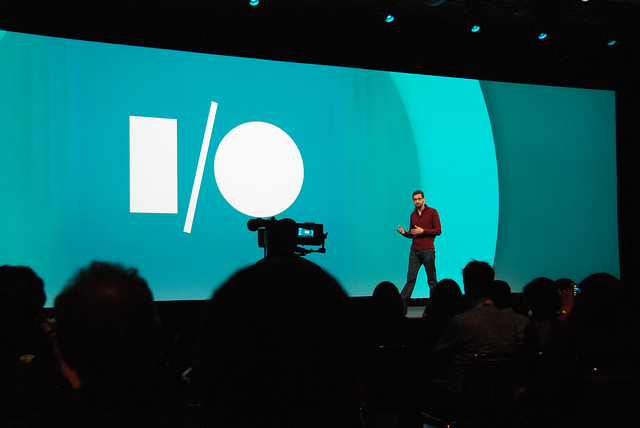What if the next billion Internet users don’t own a computer? What if, for them, and the billion after them, the web is something you reach with a smartphone or a wearable via an always-on Internet connection, no matter where you are? And what if most of them are in the world’s fastest developing countries or are members of low-income families, their playing fields levelled by their access to a world of indexed information?
Those are the kind of questions that Google asked at its I/O conference keynote last week. It was a keynote so egalitarian and humanistic that it made Apple and Microsoft look like the selfish jerks — the Donald Trumps and the Karl Lagerfelds of computing — with their interest in $17,000 gold watches and pricey tablets.
Google showed off its Chrome browser optimized for slow connections, offline maps with turn-by-turn directions and lean search pages that could capture results for use without an Internet connection. The idea, of course, is that a user could visit an Internet cafe, download what they need where the bandwidth is plentiful and return home to a weak connection and the information they required cached in their smartphone.
The search giant showed how Google Translate breaks down language barriers and inexpensive Android One phones with the latest version of Android on them are available in countries like India, Nepal and Turkey.
It demonstrated how the new Now on Tap feature could take context from any information displayed on a smartphone to assist with Google Now’s ability to understand spoken search no matter how poorly the words in a user’s non-native language were pronounced.
In short, it showed a real commitment to getting tech into the hands of folks who need it most.
It was easy, watching the event, to overlook the reality that Google is a multinational advertising company. It was easy to forget that Google is sometimes tone-deaf, nerdish and creepy. But it was also easy to imagine that Sundar Pichai, Google’s senior vice-president of Android, Chrome and Apps, also overlooks that. Throughout the presentation, his concern about truly democratizing computing seemed genuine, as did that of his fellow presenters.
That desire, I think, comes from a real place of enlightened self-interest, and from a business model that encourages a global, democratic worldview. The more people use the web, the more money Google makes. And, the more people share their pictures, words and videos, the smarter Google becomes about what the world is like. Google search and its knowledge graph is like a small child and we are, collectively, teaching it about the planet. It may take a village to raise a real child, but it takes the entire population of Earth to teach Google about human reality. And yes, that’s the creepy part.
Google wants all the help it can get. In the keynote, it was estimated that another 1.7 billion of us will have their first Internet experience in the next year. That means the population of the web will double in 12 months. A vast majority of those new users will use a smartphone as a window to the web, not a Windows desktop, not an Apple iPhone.
Apple is a hardware company that owns the entire hardware-software and manufacturing chain that creates the world’s most elegant devices for those who can afford them — it’s got design baked into its DNA. Microsoft is a software company that cares most about business and can’t shake that legacy.
Google is a search/ad company that also has a loopy sense of idealism that, it seems, is set free by the billions it’s made from delivering targeted ads online.
All three are corporations, all three answer to shareholders. All three are, at times, entitled and arrogant. And all three are in it for themselves. But, watching a keynote like last week’s at Google I/O, it’s hard not to root for the guys who are more interested in giving Nepalese farmers the web than handing a fan-waving fashion designer a solid gold watch.
Listen to an audio version of this column, read by the author, here.
Wayne MacPhail has been a print and online journalist for 25 years, and is a long-time writer for rabble.ca on technology and the Internet.
Photo: Maurizio Pesce/flickr



